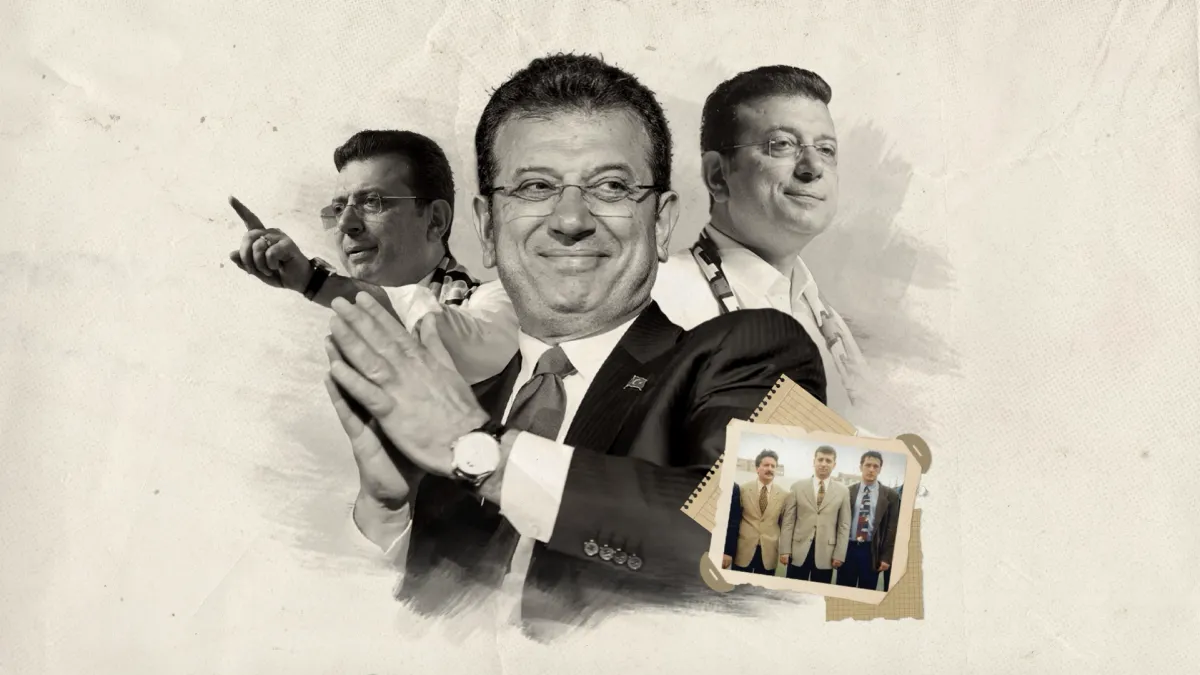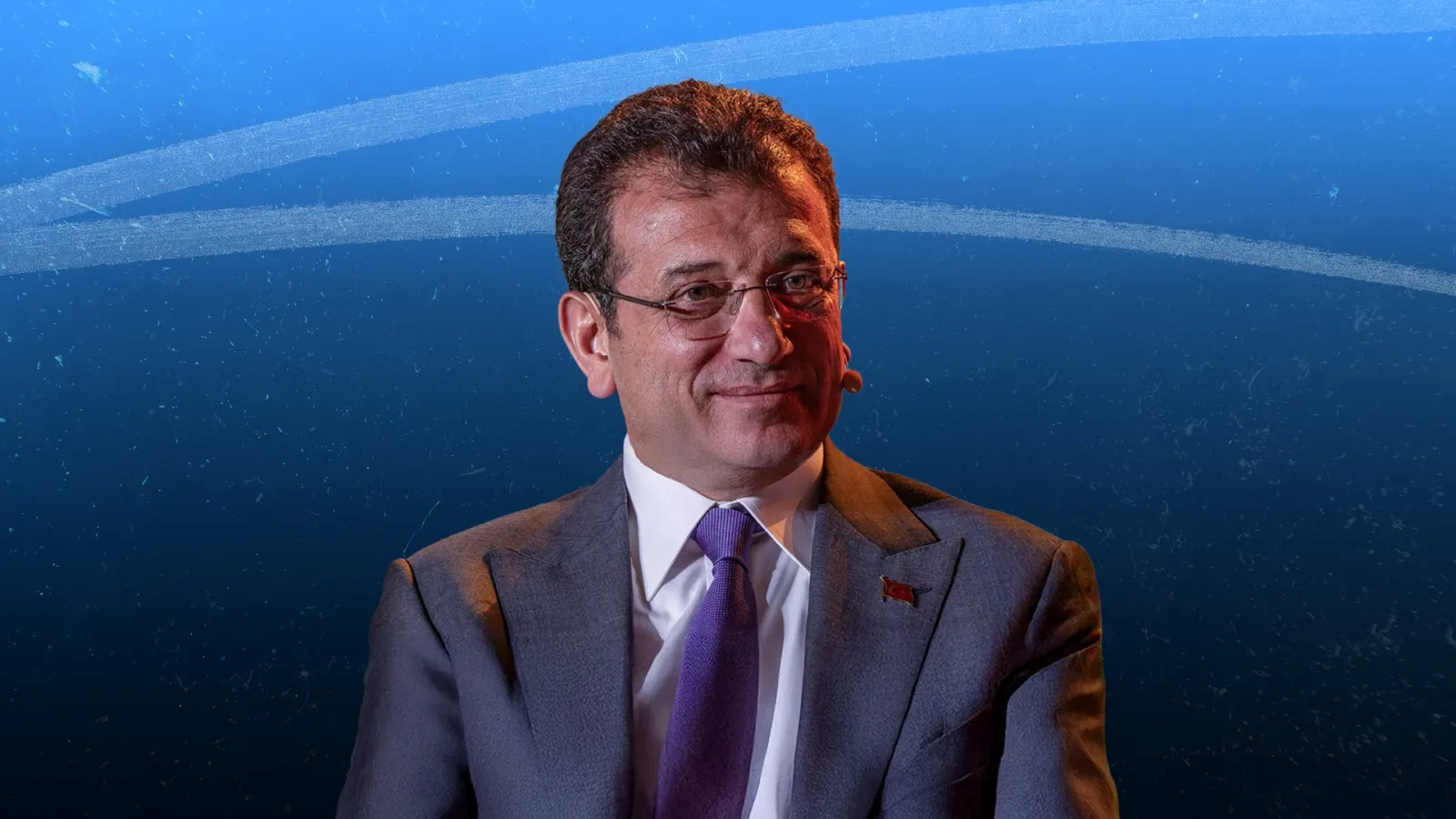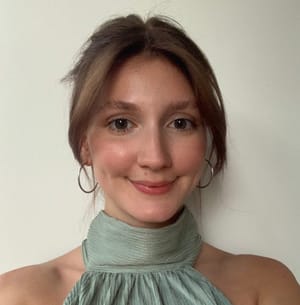Ekrem İmamoğlu knew the avalanche was coming—perhaps long before anyone else.
From the moment Turkey’s main opposition party CHP announced it would hold a primary to select its presidential candidate, events began to accelerate.
Here is Fayn’s step-by-step timeline of everything that unfolded between February 11 and March 23—based on exclusive information and verified sources.
Why did it all begin?
Ekrem İmamoğlu, the Mayor of Istanbul, has defeated President Recep Tayyip Erdoğan not once, but three times—a rare feat in Turkey's political history.
He broke the ruling party’s decades-long grip on Istanbul, a city Erdoğan once famously called his “first love.”
In doing so, he positioned himself as one of the few politicians capable of challenging the President’s unbroken streak of electoral victories.
In 2019, İmamoğlu defeated former Prime Minister Binali Yıldırım in the Istanbul mayoral election—dealing a symbolic blow to Erdoğan’s ruling party.
Angered by the result, Erdoğan referred to İmamoğlu as a “lame duck,” a remark widely interpreted as an early sign of political hostility.
In 2024, İmamoğlu won re-election—this time defeating Murat Kurum, the Minister of Environment, Urbanisation and Climate Change.
But his victory went far beyond the mayoral seat: his party also secured 26 of Istanbul’s 39 districts and gained a majority in the city council.
The result severed Erdoğan’s political connection with Istanbul, the city he once governed and still refers to as his “greatest passion.”
Back in 2019, İmamoğlu launched his campaign with the now-iconic slogan: “Everything will be fine.”
By 2024, he was no longer just a mayor—he was steadily walking toward a potential presidential bid.
On February 11, the main opposition party CHP officially announced its decision to hold a primary, nominating İmamoğlu as its candidate. The vote was set for March 23.
And from that moment on, it was as if everything began to accelerate.
On March 8, İmamoğlu officially launched his presidential campaign.
Responding to critics who said, “The election is still three years away,” he simply explained:“We need time to explain ourselves to the people.”
But in truth, he sensed the avalanche coming—perhaps he even knew it was already on its way.

İmamoğlu was aware of the investigations
According to information obtained by Fayn, Ekrem İmamoğlu was aware of the corruption and terrorism-related investigations being prepared against him.
Speaking in the Black Sea city of Trabzon on March 15, İmamoğlu warned:
“They’re going to take me out of the game. They’re playing dirty. They think they can make me bow my head with the police. They even want to do it before March 23. What they really want is the seat [the mayor’s office]”
The legal pressure on İmamoğlu began to intensify after Akın Gürlek, a former judge known for handing down controversial rulings, was appointed Chief Public Prosecutor of Istanbul in 2024.
Gürlek had previously been promoted to Deputy Minister of Justice—a move critics described as political.
The first target was Esenyurt, a district in Istanbul where the main opposition CHP won the municipality in the March 31 local elections by fielding a joint candidate with the pro-Kurdish DEM Party under a local alliance agreement known as the “urban consensus”.
As part of what became known as the “urban consensus investigation,” Mayor Ahmet Özer of Esenyurt was arrested on October 30, 2024, over alleged links to the PKK, an outlawed Kurdish militant group.
A government-appointed trustee was installed in his place.
At a time when the government itself was reportedly holding talks with Abdullah Öcalan, the imprisoned leader of the PKK, the opposition CHP was being penalised for entering an election alliance with the DEM Party—a legal political party with 57 seats in the Turkish Parliament.
This set the stage for terror-related accusations to be directed at İmamoğlu as well. The signs of a looming corruption investigation had also begun to surface in the days prior.
The first signs came with police operations targeting two CHP-run districts: Beşiktaş on January 13, and Beykoz on February 27.
In both cases, the mayors were arrested on corruption charges.
On January 17, just one day after Beşiktaş Mayor Rıza Akpolat was arrested, President Erdoğan may have offered a preview of what was to come.
Referring to opposition figures, he said:
“They know very well that the bigger turnips are still in the sack. That’s why they’re nervous.”
The phrase, a Turkish idiom, was widely interpreted as a warning that further legal action was on the horizon.
A decades-old diploma resurfaces as a political flashpoint
As debates over the corruption investigations continued, a new controversy emerged—this time about Ekrem İmamoğlu’s university diploma, dating back more than 35 years.
İmamoğlu began his studies in 1988 at Girne American University in the Turkish Republic of Northern Cyprus, in the English-language Business Administration program. Two years later, he transferred to Istanbul University, enrolling in a similar program.
Allegations that the transfer was procedurally improper first surfaced after İmamoğlu was elected mayor of Istanbul in 2019. At the time, a citizen complaint submitted to the Presidential Communications Center (CİMER) prompted a response from Istanbul University, which confirmed the process and provided documentation.
Exactly five years later, in September 2024, another complaint was filed with CİMER. On February 22, 2025, the Istanbul Chief Public Prosecutor’s Office launched an investigation into İmamoğlu for alleged forgery of official documents.
The prosecutor’s office sent an urgent request to Istanbul University on February 26, asking for detailed records.
On March 12, it followed up, demanding the process be expedited.
The revocation decision came on March 18.
Hours after the diploma was revoked, a new move: a detention order
The diploma revocation, which had already sparked widespread public debate, was soon overshadowed by a far more consequential step—one that was anticipated by both the prosecutor’s office, law enforcement, and İmamoğlu himself.
İmamoğlu had not only learned about the investigations against him—he had also been informed of the exact day and even the hour the operation would take place.As he reacted to the diploma revocation during an iftar dinner, İmamoğlu already knew that his door would be knocked on the very next morning.
On the morning of March 19, at 6 a.m., police rang the doorbell of Murat Ongun, İmamoğlu’s closest advisor and press coordinator.
He opened the door with his lawyer by his side and calmly told officers:
“We were just having a meeting.”
The message was clear: they had been expecting this.
Outside İmamoğlu’s home, hundreds of police officers had surrounded the area in the early morning hours.
At the same time, his lawyers informed the media of what was happening.
İmamoğlu himself announced his detention via social media.
Dressed in a suit, he shared a video recorded just before leaving his home:
“I say this with regret: a small group trying to override the will of our people has lined up hundreds of police officers at the doorstep of 16 million Istanbulites, using my beloved police force for this wrongdoing. I want you to know: I will not back down. I love you all deeply. I entrust myself to the people. Let the whole nation know—I will stand tall.”
A morning that echoed Turkey's Ergenekon-era raids
It wasn’t just İmamoğlu. The operation extended to district mayors, senior advisors, municipal employees, and business figures—a total of 106 people were detained.
Among them were Necati Özkan, the architect behind İmamoğlu’s campaigns, and Mehmet Ali Çalışkan, head of the Reform Institute, whose research and strategy proposals were said to have played a key role in the opposition’s sweeping success in the March 31 local elections.
The message was clear: İmamoğlu’s brain team was also being targeted.
Much like during the Ergenekon operations led by the Gülen movement years earlier, Turkey woke up to sweeping headlines about a nationwide crackdown.
The stock market plunged, and the Turkish lira sharply devalued against both the dollar and the euro.
At around the same time, the Istanbul Chief Public Prosecutor’s Office released an official statement, revealing that two separate investigations had been launched against Ekrem İmamoğlu—one on terrorism charges, the other on corruption.
The statement referred to İmamoğlu as the alleged leader of a criminal organization for profit, and claimed that he posed a high risk of fleeing or going into hiding.
In fact, İmamoğlu himself had anticipated the charges days before the prosecutor’s statement.
Speaking in his hometown Trabzon on March 15, he told a crowd:
“Now they’ll throw together a handful of sloppy accusations in a sack and charge me with ‘forming a criminal organization.’”
According to the prosecutor’s office, the investigation was triggered by the purchase of the CHP Istanbul provincial headquarters.Footage circulating on social media allegedly showed İmamoğlu’s associates counting unregistered cash during the transaction.
Prosecutors claim the money was off the books, and that the individuals in the video were acting on İmamoğlu’s behalf.
Alongside İmamoğlu, 100 individuals were targeted in the corruption investigation, and 6 others in the terrorism-related probe.Searches were conducted at their homes and workplaces as part of the operation.Held alone in detention
Within hours, Ekrem İmamoğlu was taken to the Istanbul Police Department. He was separated from the other suspects and placed in a detention cell on his own.
While the suspects were still in custody, images and documents from the confidential investigation began leaking to the media—reminiscent of similar tactics used during the Gülen era.
Pro-government outlets in particular published the allegations in near-identical language, as if drawn from the same script.
Several of the claims reported by the media were later found to be misleading or inaccurate.
One suspect, described as “caught while fleeing,” had in fact voluntarily turned over the safe said to contain 40 million Turkish lira.
Another was reported to have “escaped to Georgia” and been “captured the next day,” when in reality, he had walked into a police station on his own.
The Istanbul Metropolitan Municipality (İBB) publicly refuted many of the allegations—particularly those sourced from prosecutor and police leaks—accusing the media of deliberate distortion.
A key suspect released without questioning?
Amid the wave of detentions, CHP leader Özgür Özel held a press conference and made a striking claim.
He alleged that Serdar Haydanlı—a media figure who had previously worked on high-profile pro-government campaigns such as “Turkey’s Century,” and whose name was reportedly on the detention list—had been released following a phone call from someone “high up.”
According to Özel, “The first person he called was the President’s head of security, Ali Erdoğan.”
The prosecutor’s office denied the claim, stating that Haydanlı was indeed in custody.
Özel, however, responded by insisting that Haydanlı was initially released and only brought in after public pressure:
“I know he was outside, that he was brought in this morning, and that he still had his phone with him. Show us his initial medical examination report,” he said, addressing the chief prosecutor directly.”
Haydanlı was officially arrested on March 23.
How did İmamoğlu respond to the allegations?
While the media storm continued outside, İmamoğlu remained in detention.
Although he was taken into custody on Wednesday morning, he was not brought in for questioning until Friday.
His first interrogation focused on the corruption investigation.
When asked whether he wished to benefit from "effective remorse" provisions—a clause in Turkish law that allows reduced sentences in exchange for cooperation—İmamoğlu replied:
“I do not wish to benefit from this provision because I have not committed any crime.”
According to information obtained by Fayn, the phones of İmamoğlu and several other suspects had been under surveillance since January.
However, no phone records were brought up during questioning—reportedly because no incriminating content was found.
Instead, the investigation leaned heavily on the use of “secret witnesses”—a controversial practice frequently employed during the Ergenekon trials, which had led to the imprisonment of many individuals without concrete evidence.
The two investigations involving İmamoğlu and 105 others relied on the testimony of four secret witnesses.
According to available interrogation records, their statements were largely based on rumours and secondhand claims.
They offered no evidence to support their accusations, and police did not pursue independent verification.
When questioned about the secret witness allegations, İmamoğlu repeatedly responded:
“I do not acknowledge this person as credible.”
That was his answer to 36 separate questions.
During his interrogation, İmamoğlu was questioned about municipal tenders.
He responded by referencing former mayors of Istanbul—including Recep Tayyip Erdoğan himself:
“Like all former Istanbul mayors—including the late Kadir Topbaş, Ali Müfit Gürtuna, and Mr. Erdoğan—I neither participated in tenders, nor signed off on them, nor had time to follow up on their outcomes during my term.”
İmamoğlu was also questioned about his phone signal data, which showed his location in Beylikdüzü and other districts of Istanbul, alongside his advisor Murat Ongun and other suspects.
He responded:
“At the time, I was residing in Beylikdüzü, so it’s normal for my phone to show up there. As the Mayor of Istanbul, I move around the city throughout the day as part of my public duties. That’s why I can be in different districts at different times. Frankly, I don’t understand the point of this question.”
What’s in the MASAK report prepared in just 7 days?
The operation also included a report from MASAK, Turkey's Financial Crimes Investigation Board.
According to information obtained by Fayn, prosecutors requested the report on March 3, 16 days before the operation.
The appointed inspector began work on March 10 and delivered the report to the prosecutor’s office within just 7 days, on March 17.
İmamoğlu was questioned about real estate transactions and money transfers involving his family-owned business, İmamoğlu Construction, which had been targeted by a seizure order.
He responded that he had filed official asset declarations, that relevant institutions could be contacted for verification, and that he held no signing authority at the company.
İmamoğlu concluded his testimony by directly criticizing the investigation itself:
“From the moment I was taken into custody to the questions asked during this interrogation, I must say: I now feel even worse—for our nation, our city, and our country. I vow, before my people, that I will pursue every legal avenue against those who brought this accusation against me and made 16 million Istanbulites live through a moment in which their elected mayor was taken into custody. I will do everything in my power to ensure that they face justice.”
The terrorism case: The question that infuriated İmamoğlu
After answering questions related to the corruption investigation, İmamoğlu was also interrogated as part of a separate terrorism probe.
During the interrogation, İmamoğlu was asked:,
“Have you ever left the country through legal or illegal means?”
The question drew a sharp reaction:
“Asking whether I have left the country illegally—directed at the mayor of a city of 16 million—is, in my view, the highest form of indecency and a deliberate act.”
İmamoğlu was also asked about the term "urban consensus" (kent uzlaşısı), which had been used in reference to the opposition’s cooperation with the pro-Kurdish DEM Party in the local elections.
He responded:
“In Istanbul and many other provinces, the CHP pursued an inclusive local election strategy under the slogan of a ‘Turkey alliance.’ I understand that the term ‘urban consensus’ comes from the DEM Party’s own rhetoric. It should not be addressed to me, but to DEM Party leaders—who, as of now, are actively engaged in political dialogue with the government.”
The terrorism investigation also relied on a secret witness.
İmamoğlu rejected the testimony in strong terms:
“I do not accept the use of secret witnesses or their statements. These are fabricated lies, part of a conspiracy. They are baseless slanders—full of low-level, offensive claims that insult the honour, dignity, and reputation of the people mentioned.”
Following their interrogations, İmamoğlu and the other suspects were referred to court on the evening of Saturday, March 22.
At Çağlayan Courthouse, İmamoğlu’s statements regarding both the terrorism and corruption allegations closely mirrored what he had previously told police.
After his testimony, prosecutors formally requested his arrest on both charges: terrorism and corruption.
Appearing before the on-duty judge, İmamoğlu rejected all charges and used the moment to deliver a pointed message to President Erdoğan:
“The President is using the judiciary to take back Istanbul and its districts after losing them in the elections. This systematic operation began with the appointment of the Chief Public Prosecutor to Istanbul last October. I do not expect justice from those who serve men instead of principles.”
The judge then issued the ruling.
What does “released from the terrorism case” really mean?
Ekrem İmamoğlu was formally released from the terrorism charges but was arrested on corruption charges and transferred to Marmara Prison in Silivri, outside Istanbul.
The prosecutor’s office explained the decision with the following statement:
“Although there is strong suspicion of aiding an armed terrorist organization, detention on financial crimes has already been ordered; therefore, no further arrest is necessary at this stage.”
The implication was clear: even if İmamoğlu were to be released from the corruption case, he could still be detained under the terrorism investigation—a scenario reminiscent of how Turkish philanthropist Osman Kavala was kept behind bars through multiple overlapping charges.
Meanwhile, of the 106 individuals detained, 51 were arrested, 40 were released under judicial supervision, and several suspects remain at large.
He was arrested—then nominated as CHP’s presidential candidate by millions
While in prison, Ekrem İmamoğlu’s path to a potential presidential run was seemingly blocked by the revocation of his university diploma—an eligibility requirement under Turkish law.
Still, he sent out a message of defiance and perseverance via his social media channels, signaling that his political fight was far from over.
But under current conditions, it appears that Ekrem İmamoğlu—like Selahattin Demirtaş, the former leader of Turkey’s pro-Kurdish HDP party—will be absent from the political stage for an indefinite period.
On March 23, the very day İmamoğlu was arrested, the CHP held its planned primary to select its presidential candidate.
However, in response to the ongoing operation against him, solidarity ballot boxes were set up across Turkey, allowing not only party members but anyone to sign in support of İmamoğlu.
Since the start of the operation on March 19, thousands have gathered each evening in Saraçhane, in front of the Istanbul Municipality Building, to protest and show their support.
That night, while spending his first night in Silivri Prison, İmamoğlu was not only the presidential candidate chosen by 1.65 million CHP members but also the symbol of solidarity for over 15 million people across Turkey.
In just 41 days, from February 11 to March 23, this was the story that unfolded.




